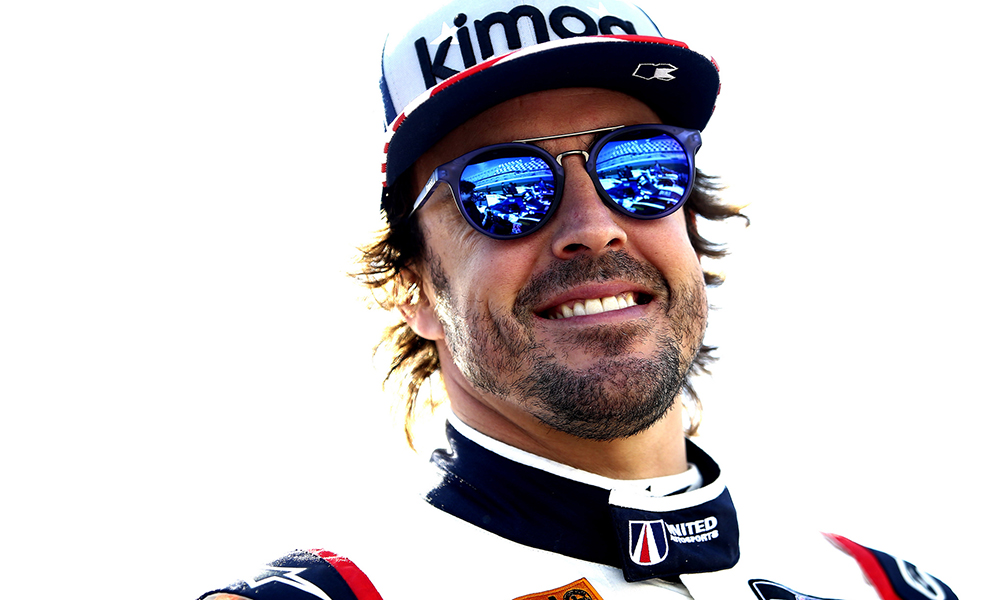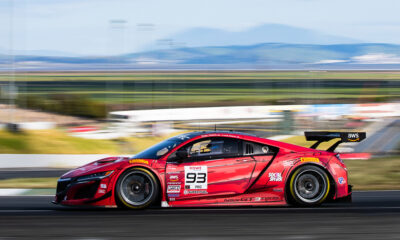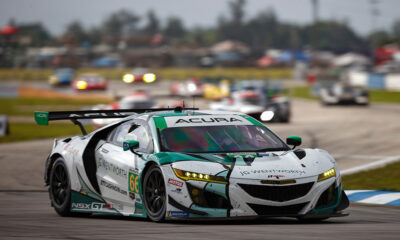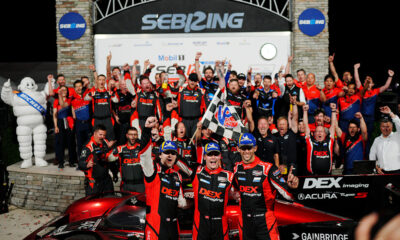
Photo: United Autosports
The sports car racing headlines have been dominated by one driver as of late, whose presence has now, quite literally, resulted in significant changes being made to our sport.
But is it all for the better?
Many would argue that Fernando Alonso’s new-found interest in endurance racing is nothing but good for our rather niche form of motorsport, which often gets overshadowed by the likes of Formula 1, NASCAR and even IndyCar in North America.
While it’s a slightly different situation in Europe, sports car racing is still minuscule in the overall scheme of global sporting events, despite the high visibility of the 24 Hours of Le Mans every June.
His addition to the grid has no doubt brought some extra attention and eyeballs, but is it everything that series promoters are hoping for, or perhaps gambling on, to really be?
Rumors of the two-time F1 world champion having a go at Le Mans, and potentially the FIA World Endurance Championship, had been around for years, and the Spaniard hasn’t hidden his ambition of broadening his horizons.
Alonso’s debut in the Indianapolis 500 last year served as the first step in his quest to become only the second driver to achieve the unofficial ‘Triple Crown’ of motorsport, with victories at Indianapolis, Le Mans and the Monaco Grand Prix.
Things kicked into high gear late last year when he tested a LMP1 car for the first time, in the WEC Bahrain Rookie Test with Toyota Gazoo Racing.
It was there, in a very public setting, that it became clear that we would likely see Alonso make his Le Mans debut this year with the Japanese manufacturer.
His first race at the wheel of a prototype, however, came five months earlier at the Rolex 24 at Daytona, as part of United Autosports’ lineup in a Ligier JS P217 Gibson, in a team co-owned by Alonso’s F1 boss Zak Brown.
While much fanfare surrounded his debut, it was Alonso’s co-driver, rising open-wheel star Lando Norris, that turned heads within the Anglo-American team for his impressive pace, often turning quicker laps than his much more accomplished teammate.
Within 48 hours of his Rolex 24 run came confirmation that Alonso would indeed be part of Toyota’s lineup at Le Mans, but also for all non-conflicting WEC races.
Alonso-mania had kicked into high gear, and series boss Gerard Neveu appeared certain to take advantage of the opportunity.
With Alonso committed to four of the five WEC races in the calendar year for the 2018/19 ‘Super Season’, only the Six Hours of Fuji, scheduled for Oct. 19-21, clashed with an F1 race, the U.S. Grand Prix at Circuit of The Americas.
Increasing pressure, including from the Toyota-owned Fuji Speedway, led to the WEC quietly confirming a date change for the Japanese round on Friday, moving the event up by one week for Alonso to take part in Toyota’s home race.
While it may sound like a “logical” decision on paper, as Neveu stated, the ripple effect it’s created has left many questioning where the WEC’s priorities are at.
That’s because the date change puts the Fuji race back on the same weekend as the Motul Petit Le Mans, an event that sees significant international participation, including from a number of full-time WEC drivers.
What’s more, the Fuji 2018 date, originally scheduled for Petit Le Mans weekend, was moved in September to specifically eliminate the clash with the IMSA WeatherTech SportsCar Championship season finale.
The difference, some five months later, comes down to decision made to accommodate a single driver that now leaves a dozen others, as well as crew members, support staff and media with conflicting plans, after being told the clash had been averted.
Is Alonso big enough to ignore some of sports car racing’s leading drivers such as Olivier Pla, Nico Lapierre, Harry Tincknell and Mike Conway, who all have contractual obligations to now be in two places at once?
Would the WEC had changed the date if it was any other single driver? Frankly, I’d find that to be highly unlikely.
And that’s where the line needs to be drawn. A championship cannot, and should not, make potential career-impacting changes based on the schedule of a single driver, no matter his or her stature in the motorsports world.
Drivers who had been assured by the WEC five months ago of no clash, and therefore setting their 2018 plans into motion, are now faced with the nearly impossible task of having to select one race over the other.
It could result in contracts being void and drivers losing their rides, or missing out on the chance to win a championship by year or seasons’ end.
All to accommodate one person.
Do we really believe Alonso’s arrival will instantly turn Le Mans and the WEC into household names?
Given his impact at Daytona, which saw slightly decreased U.S. TV ratings year-to-year, I’m frankly very skeptical that a single driver can have that big of an impact on a championship, especially in the short-term.
That’s what makes this decision even more questionable, and sets a dangerous precedent moving forward.
Should the 2019 F1 schedule clash with a WEC race next year, will that mean further changes to the 2018/19 calendar? Will Sebring, Spa or even Le Mans have to be moved?
This opens a whole new can of worms, and one that’s quite concerning in the motorsports landscape.
While Alonso’s entry into the endurance racing world has been a welcome addition by nearly everyone, I don’t believe he’s the savior that some are making him out to be.
Scheduling conflicts happen, but the ‘Alonso Effect’ has gone too far, and needs to be addressed now before it spirals out of control and impacts the long-term health of the sport.
For all we know, granted Alonso wins Le Mans this year or in 2019, he could very well be off to new pastures in his personal quest, and leave the sports car racing world picking up the pieces.
The views and opinions expressed on this web site are solely those of the original authors and other contributors. These views and opinions do not necessarily represent those of Sportscar365.com, John Dagys Media, LLC and/or any/all contributors to this site.

























